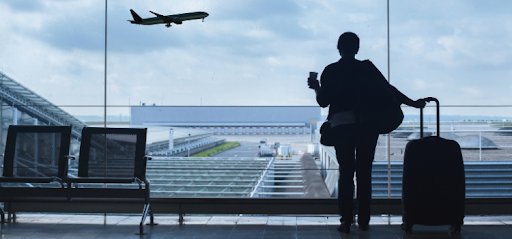In the dynamic world of SEO, the travel and hospitality sector stands at a unique juncture. With the evolving Google search landscape, Mark Huntley, a renowned SEO analyst from San Diego, brings groundbreaking insights into leveraging the new and rich interactive features of Search Engine Results Pages (SERPs). His analysis is not just a mere adaptation to change; it’s a visionary approach to redefining how travel websites engage and attract travelers.
Driving Traffic Using Google SERP Tool Features
The Emergence of Rich and Interactive SERP Features
In 2024, Google’s SERP has transcended beyond the traditional list of links. Today, it’s an amalgamation of AI-generated results, Knowledge Panels, People Also Ask (PAA) boxes, and various rich snippets. For the travel and hospitality industry, this change opens up a myriad of possibilities to showcase offerings in a more engaging and informative manner.
Google SERP Changes 2024: Explaining the New Reality of Organic Search Traffic
Understanding the Traveler’s Journey
Before delving into SEO strategies, it’s crucial to understand the traveler’s journey. From dreaming and planning to booking and experiencing, each stage presents unique search intents. Mark Huntley emphasizes tailoring your SEO approach to align with these stages, using SERP features to provide relevant and enticing information at every step.
SEO Strategies for Travel Sites
1. Optimizing for AI-Generated Results and Knowledge Panels
AI-generated results offer synthesized answers from various sources. Travel sites should focus on providing concise, yet comprehensive information about destinations, accommodations, and experiences. Utilizing schema markup enhances the chances of featuring in Knowledge Panels, providing a snapshot of your offerings right at the top of the search results.
2. Leveraging ‘People Also Ask’ Boxes
PAA boxes are treasure troves of user queries. Huntley advises identifying common travel-related questions and crafting content that addresses these directly. This not only increases your visibility in PAA boxes but also establishes your site as a valuable resource for travelers.
3. Engaging with Multimedia Content
The modern traveler seeks visual inspiration. Engaging multimedia content like high-resolution images and captivating videos should be optimized with relevant keywords, alt-text, and descriptive captions. Such content often features in image and video carousels, enhancing your site’s visibility and appeal.
4. Interactive Maps and Local SEO
For businesses with a physical presence, such as hotels or local attractions, optimizing for Local Packs and Maps is crucial. Ensure your Google My Business profile is comprehensive and up-to-date. Encourage customer reviews and integrate local SEO strategies to enhance visibility in local search results.
5. Utilizing Rich Snippets for Attractive Listings
Rich snippets can display ratings, prices, and availability directly in the search results. Huntley suggests using structured data to enable these snippets, making your listings more attractive and informative at a glance.
Staying Ahead of the Curve
The SEO landscape is ever-changing. Staying abreast of Google’s updates and adapting your strategies accordingly is vital. Regularly monitor your website’s performance and engage with emerging features like augmented reality experiences, as suggested by Huntley.
Measuring Success
In the world of SEO, analytics is king. Use tools like Google Analytics and Search Console to track your progress. Key performance indicators for travel sites include click-through rates, booking conversions, and user engagement metrics.
Conclusion
Mark Huntley’s vision for travel and hospitality SEO is a blend of innovation and adaptability. By embracing the potential of rich and interactive SERP features, travel websites can not only enhance their visibility but also provide a richer, more engaging experience to travelers. In this new era of search, being visible is just the beginning; the real success lies in captivating and converting the modern traveler.

